The North Central Texas chapter of the Congress for the New Urbanism (CNU) promotes walkable communities, availability and access to multi-modal transportation, and a range of housing choices and neighborhood types for all ages and income levels.
Keep up with the latest communication from the North Texas Chapter of The Congress for the New Urbanism.
We promote initiatives such as walkable school districts, infilling sprawl and retrofitting suburbia, and redesigning highways to boulevards through central cities.
We advocate for local public policy, hold events for professionals and dedicated lay people, and believe the principles of urbanism are an essential part of any strategy to address municipal growth and decay, economics, housing inequality, crime, and sustainibility of our cities.

As stated in the Charter of the Congress for the New Urbanism we believe, “neighborhoods should be diverse in use and population; communities should be designed for the pedestrian and transit as well as the car; cities and towns should be shaped by physically defined and universally accessible public spaces and community institutions; urban places should be framed by architecture and landscape design that celebrate local history, climate, ecology, and building practice.”
We are the local arm of the national CNU that seeks to advance bipartisan reforms that deliver market-based improvements to the economy, the environment and public health. Initiatives work to remove codes, standards, and financial and tax incentives that act as obstacles to the creation of vibrant, healthy, value-driven and better-performing districts. Initiative work is based on tasks that can be completed within a specific timeframe and directly relate to CNU’s strategic goals: Sustainability, Transportation, Regionalism, Affordability, Financing and Entitlements,and Accessibility and Visitability.

The Charter of the New Urbanism
The Congress for the New Urbanism views disinvestment in central cities, the spread of placeless sprawl, increasing separation by race and income, environmental deterioration, loss of agricultural lands and wilderness, and the erosion of society’s built heritage as one interrelated community-building challenge.
We stand for the restoration of existing urban centers and towns within coherent metropolitan regions, the reconfiguration of sprawling suburbs into communities of real neighborhoods and diverse districts, the conservation of natural environments, and the preservation of our built legacy.
We advocate the restructuring of public policy and development practices to support the following principles: neighborhoods should be diverse in use and population; communities should be designed for the pedestrian and transit as well as the car; cities and towns should be shaped by physically defined and universally accessible public spaces and community institutions; urban places should be framed by architecture and landscape design that celebrate local history, climate, ecology, and building practice.
We recognize that physical solutions by themselves will not solve social and economic problems, but neither can economic vitality, community stability, and environmental health be sustained without a coherent and supportive physical framework.
We represent a broad-based citizenry, composed of public and private sector leaders, community activists, and multidisciplinary professionals. We are committed to reestablishing the relationship between the art of building and the making of community, through citizen-based participatory planning and design.
We dedicate ourselves to reclaiming our homes, blocks, streets, parks, neighborhoods, districts, towns, cities, regions, and environment
The board of directors and the chapter membership are comprised of civic-minded individuals from a variety of fields, including elected officials, real estate developers, urban planners, architects, and citizens who care about their neighborhood, their city, and the built environment.
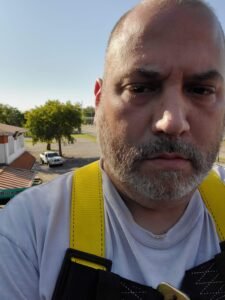
Peter J. Cioe
PresidentAs President of Community Focused Ventures, Peter is a committed urbanist because of his experiences growing up in New England and traveling for his previous career. When he learned about the New Urbanist movement, he found his new mission. Peter now purchases and redevelops older buildings, giving them new purposes, and is an active member of the communities he works in.
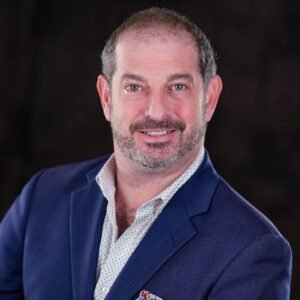
Brandon Palanker
Vice PresidentBrandon is a revitalization strategist, storyteller, and developer of mixed-use projects who has dedicated his life to creating and telling the stories of great places. Founder of 3BL Strategies & Development his work centers around a community led, market driven, and outcome-oriented approach to envisioning, building and managing inspiring places built for people. Co-creator of the nationally acclaimed Crowdsourced Placemaking engagement platform, Brandon’s planning and development work has resulted in the construction of hundreds of millions in built value representing the ethos of social, environmental, and economic responsibility.
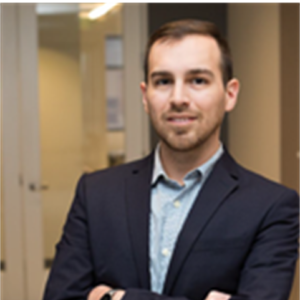
Matthew Ables, AICP
SecretaryMatthew is a Senior Urban Planner at AECOM based in Dallas, TX. He has experience in working on a variety of projects ranging from large-scale infrastructure projects to smaller agency transit plans. He believes in data-driven planning processes focusing on equitable strategies and solutions utilizing emerging technologies. Matthew is AICP-certified and an adjunct professor at the University of Texas at Arlington’s College of Architecture, Planning and Public Affairs.
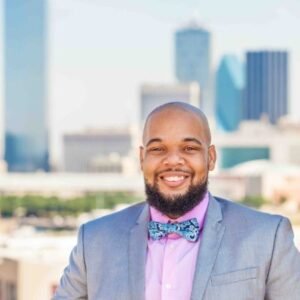
Nikia Summerlin
TreasurerNikia, a native Dallasite and experienced community leader, has significantly influenced urban planning in both public and private sectors. With a degree in Urban & Regional Planning from Arizona State University, he has shaped comprehensive plans, downtown master plans, and zoning updates. Nick is now gearing up to pursue a master’s in urban design or real estate development, furthering his commitment to sound urban planning principles and helping cities reach their full potential.
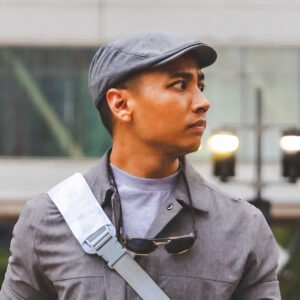
Hexel Colorado
Board MemberHexel founded Dallas Urbanists STLC, a Strong Towns Local Conversation focused on improving walkability in Dallas. A lifelong DFW resident and Dallas-native, Hexel is passionate about housing, transportation, and zoning. Car-free since 2022, Hexel advocates with groups like Dallas Neighbors for Housing, Dallas Bicycle Coalition, and Dallas Area Transit Alliance (DATA), and serves as chair of the DART Citizens Advisory Committee (CAC).
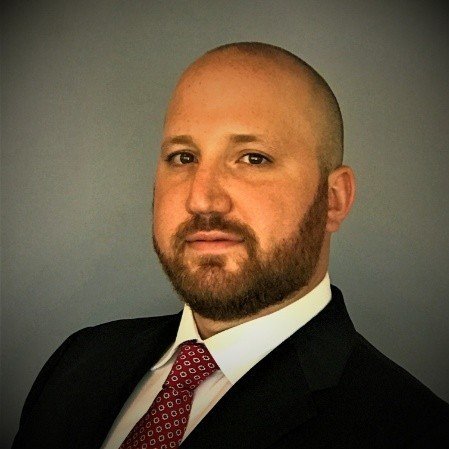
David Galstyan
Board MemberDavid’s passion for the built environment began with PARK(ing) Day 2015, where he transformed a Downtown Dallas parking space into a lively backyard. This enthusiasm for innovative urban spaces evolved into a career in real estate finance and investments, focusing on value-add and ground-up development. As CNU Board Member, David seeks ways to serve his community, leveraging his expertise to enhance local development and placemaking.
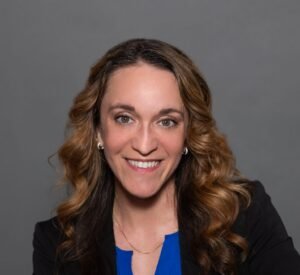
Alexis Kanter Phelan
Board MemberAlexis’s passion for new urbanism began during her Peace Corps service in Botswana (2010–2013), where she observed the impact of city design on community well-being. She has over a decade of leadership experience in local and international nonprofit organizations, and has been an active member and committee leader with ULI Dallas-Fort Worth since 2014. Alexis is a native Dallasite and senior commercial appraiser at National Valuation Consultants. She holds an MBA in real estate and finance from SMU, and continues to channel her expertise toward advancing new urbanism throughout the Dallas-Fort Worth metro area.
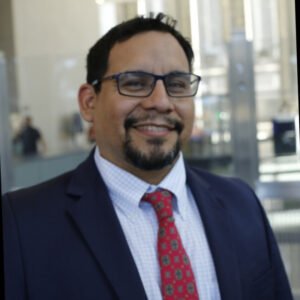
Abraham Zorilla
Board MemberAbraham is a Senior Planner with over 10 years of experience in community planning, serving some of the most diverse communities across Texas. With extensive experience managing diverse teams and creating strategic plans, Abraham is committed to fostering equitable urban environments and enhancing cultural understanding in planning practices. He actively promotes cross-cultural collaboration and innovation through professional networks such as CNU Latino.
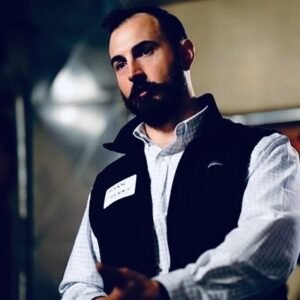
Ryan Terry
Board MemberRyan is the principal and managing partner of R + T Studio, a real estate development and consulting company based in Fort Worth, where he focuses on small, incremental infill projects that build long-term value and support flourishing communities. Ryan is also a long-time Senior Faculty member and Chairman of the Board of the Incremental Development Alliance, where he teaches and coaches aspiring developers throughout the country how to execute projects in their own cities and towns.
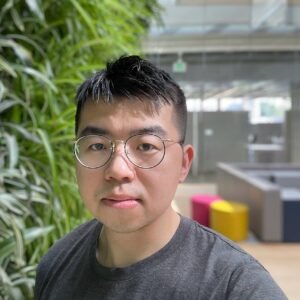
Wei Liu, PhD, AICP, CNU-A
Board MemberWei is an urbanist, planner, and scholar with a diverse portfolio of both practice and research spanning from micro to macro-scale across the United States and China. He has extensive experience in community engagement in which he builds consensus for a shared vision. In his spare time, he enjoys swimming and is now learning golf.